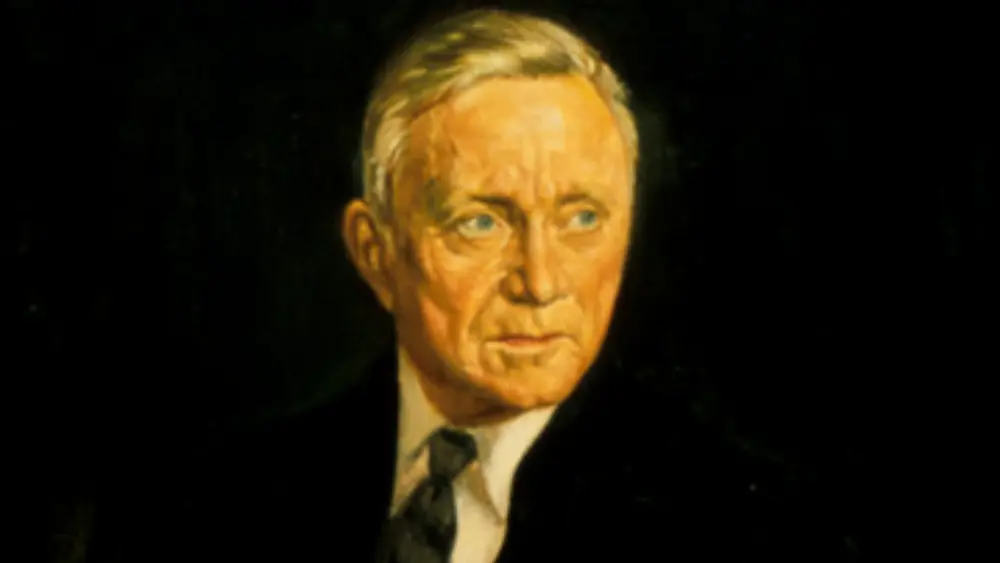William O. Douglas, renowned for his Supreme Court tenure, is celebrated for his enduring civil rights and racial equality commitment. Born on October 16, 1898, in Maine, Minnesota, Douglas’s remarkable judicial career spanned several decades and left an indelible mark on American jurisprudence.
Early Life and Education
William O. Douglas’s early life in the Pacific Northwest shaped his deep love for nature and the outdoors. In his Pacific Northwest upbringing, he formed a deep bond with nature, shaping his future judicial decisions. Douglas attended Whitman College during his higher education, enhancing his intellect while preserving his love for the environment.
He studied at Columbia University, obtaining a law degree and launching his remarkable legal career through a pursuit of knowledge. His education provided legal expertise for his Supreme Court role and strengthened his commitment to conserving U.S. natural beauty and resources.
William O. Douglas: New Deal and Government Service
During the New Deal era, William O. Douglas played a pivotal role in the U.S. government, altering his career significantly. Douglas joined the SEC, playing a vital role in regulating financial markets and safeguarding investors. At the SEC, he upheld financial industry integrity and transparency amid economic turmoil, displaying unwavering commitment to these principles.
Douglas showed dedication to public service and a deep understanding of finance and securities in this role. He worked to boost market confidence, protect investors, and demonstrate commitment to Americans, paving the way for his Supreme Court role. Douglas’s New Deal era work shaped finance regulation and launched his distinguished judicial career, leaving a lasting legacy.
Appointment to the Supreme Court
In 1939, President Franklin D. Roosevelt made a significant appointment to the United States Supreme Court by selecting William O. Douglas as a Justice. Douglas’s court appointment began a lasting career, shaping American law for decades and enduringly impacting jurisprudence. Douglas, a Supreme Court Justice, championed civil liberties and rights, shaping his jurisprudential philosophy with enduring principles.
Douglas, on the Court, championed freedoms, with opinions defending the First Amendment, privacy, and essential liberties during his tenure. His progressive legal approach distinguished him as a staunch defender of all Americans’ rights, setting him apart. Douglas’s Supreme Court legacy reflects his steadfast commitment to justice, equality, and the rule of law in the U.S..
William O. Douglas: Brown v. Board of Education
Justice William O. Douglas emerged as a passionate advocate for racial equality during his tenure on the Supreme Court, leaving an enduring impact on American civil rights. His commitment to justice and equality was most prominently displayed in his pivotal role in the landmark case of Brown v. Board of Education in 1954. In this historic case, Justice Douglas’s opinions played a crucial part in establishing the legal foundation for the desegregation of public schools, a transformative moment in the struggle for civil rights in the United States.
Through his thoughtful and forceful opinions, Douglas articulated the principle that “separate but equal” had no place in American education or society, underscoring the inherent injustice of racial segregation. His unwavering support for eradicating racial discrimination and his dedication to creating a more equitable and integrated society solidified his legacy as a champion of civil rights. Justice Douglas’s contributions to the legal battle against segregation and racial inequality continue to be celebrated as an integral part of the nation’s journey towards a more just and inclusive society.
Expanding Voting Rights
Justice William O. Douglas’s commitment to justice and equality extended beyond his work in desegregation cases. He played a pivotal role in expanding voting rights through his jurisprudence, championing the protection of every citizen’s right to vote, regardless of their race or ethnicity. Throughout his tenure on the Supreme Court, Douglas consistently advocated for the principles of democracy and the enfranchisement of all Americans.
In landmark voting rights cases, Justice Douglas’s opinions emphasized the fundamental importance of free and fair elections as the cornerstone of American democracy. His unwavering dedication to ensuring equal access to the ballot box, regardless of racial or ethnic background, helped pave the way for pivotal legislation such as the Voting Rights Act of 1965. Douglas’s legacy in the realm of voting rights endures as a testament to his tireless efforts to secure one of the most fundamental citizenship rights for all Americans, regardless of their background or circumstances.
William O. Douglas: Free Speech and Civil Rights
Justice William O. Douglas’s unwavering commitment to free speech and civil rights principles made him a pivotal figure during the turbulent 1960s. In a decade marked by profound social change and civil unrest, Douglas emerged as a staunch defender of the First Amendment, championing the rights of civil rights activists to free speech and assembly. His jurisprudence underscored the vital importance of these constitutional freedoms in the struggle for civil rights and social justice.
Through his opinions and legal decisions, Douglas provided a solid legal foundation for protecting the rights of individuals and groups advocating for racial equality and civil rights. His support for free speech and assembly rights ensured that the voices of those seeking justice and equality could be heard, even in the face of opposition and adversity. Douglas’s enduring legacy defends fundamental freedoms and champions equality and justice in American society, shaping the civil rights movement.
Environmental Conservation
William O. Douglas’s legacy went beyond civil rights and free speech; his environmental passion impacted environmental law. Douglas’s dedication shaped the U.S. environmental movement, preserving its natural beauty and resources and playing a pivotal role in modernization. Through landmark decisions and legal opinions, he helped establish a framework for environmental protection that endures to this day.
Douglas valued nature, emphasizing it in jurisprudence, with opinions reflecting a deep appreciation for wilderness and natural landscapes. His role in defining the legal principles underpinning environmental conservation transformed the way society perceives and interacts with the environment. Justice Douglas’s environmental contributions inspire responsibility for Earth, showcasing his enduring legacy as a nature champion and legal pioneer.

William O. Douglas: Legal Philosophy and Influence
Justice William O. Douglas’s unwavering commitment to safeguarding individual rights left a lasting impact on constitutional law. During his Supreme Court tenure, Douglas championed individual rights, delivering opinions that upheld Constitution-enshrined freedoms, making a lasting impact. His jurisprudence stressed the Bill of Rights and Constitution’s adaptability as living documents, vital for evolving societal needs.
His dedication to defending rights and supporting the marginalized secured his legacy as a legal giant against government intrusion. Douglas’s legal philosophy inspires scholars, advocates, and jurists to uphold justice and individual rights in the American legal system.




